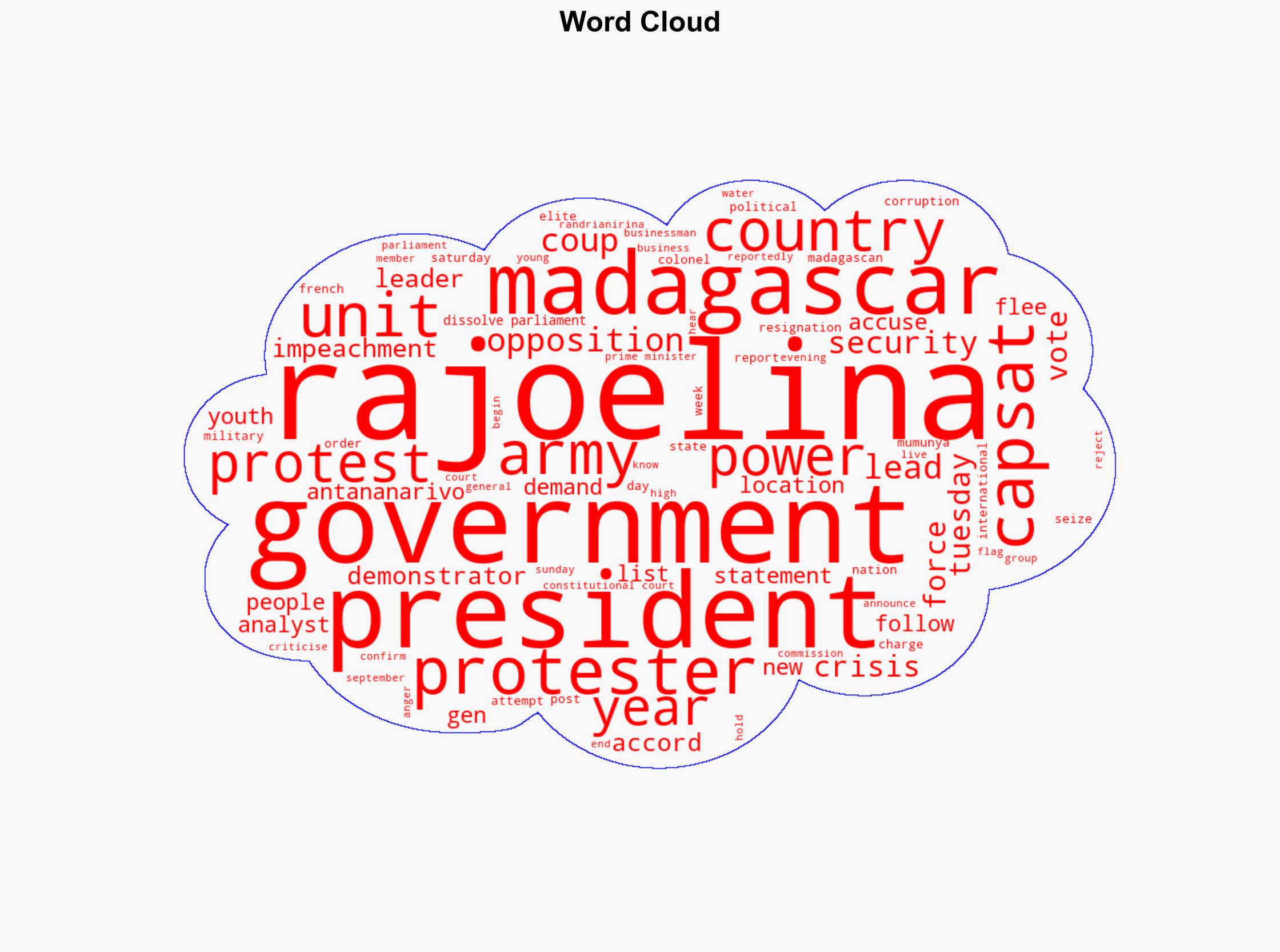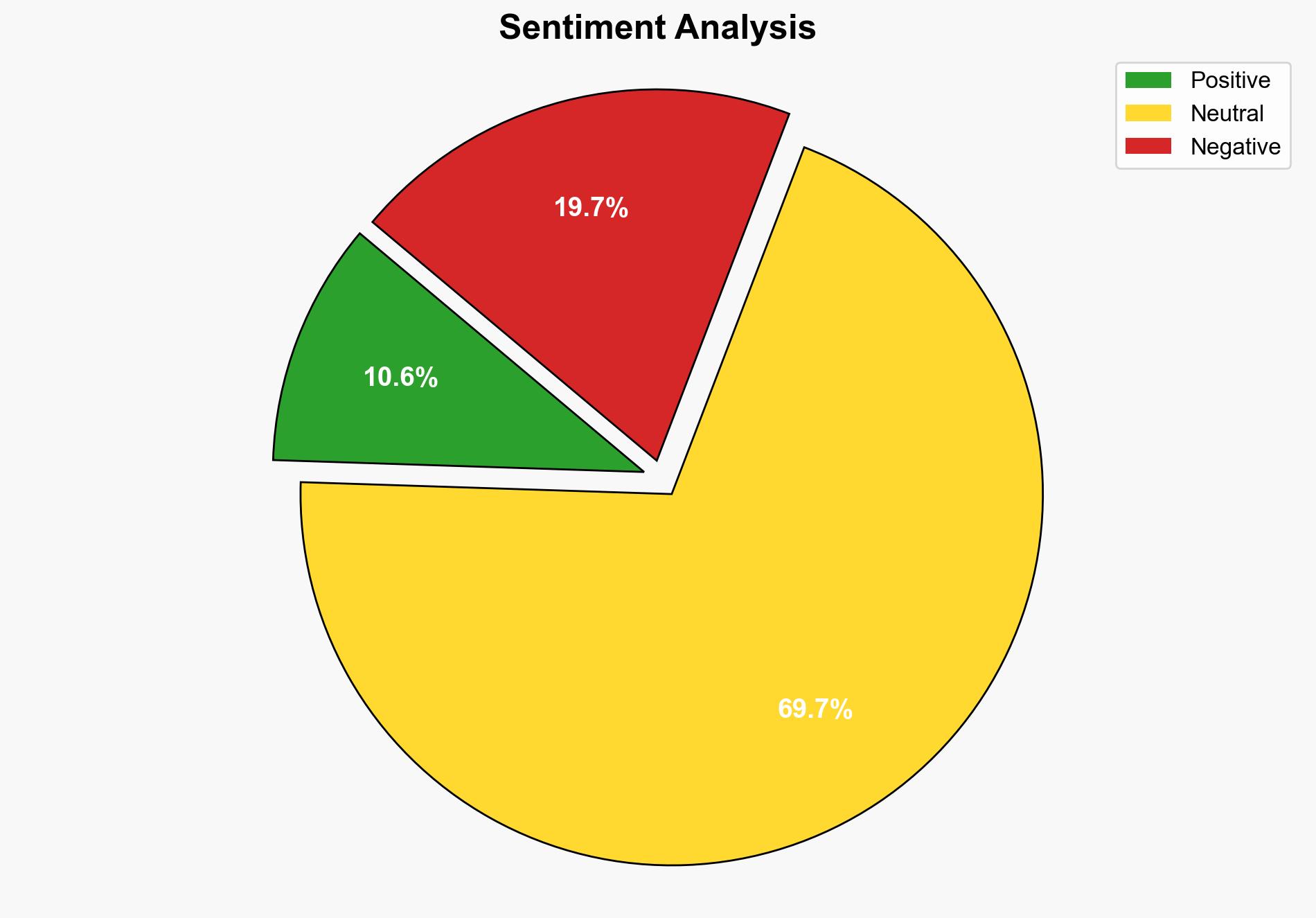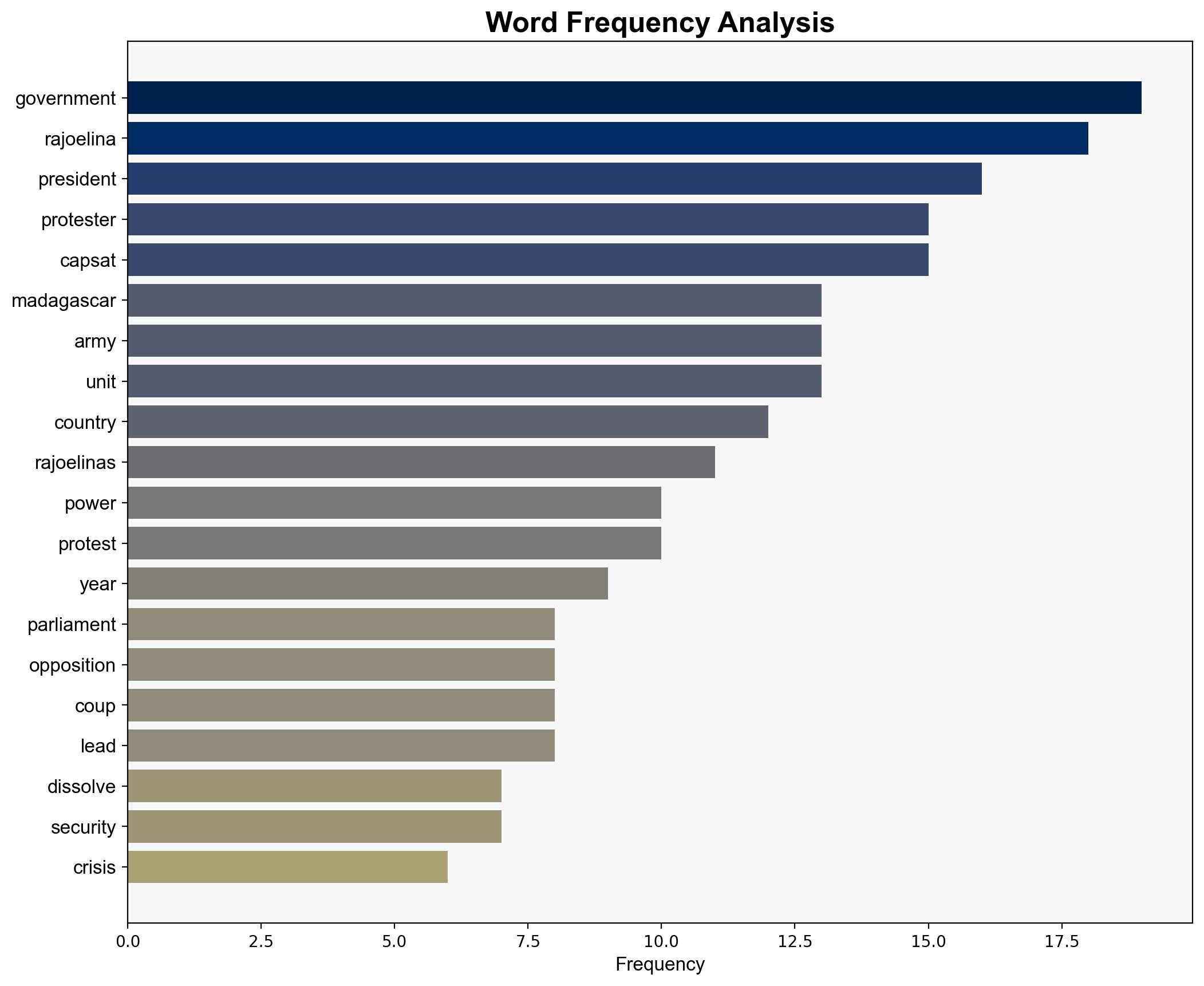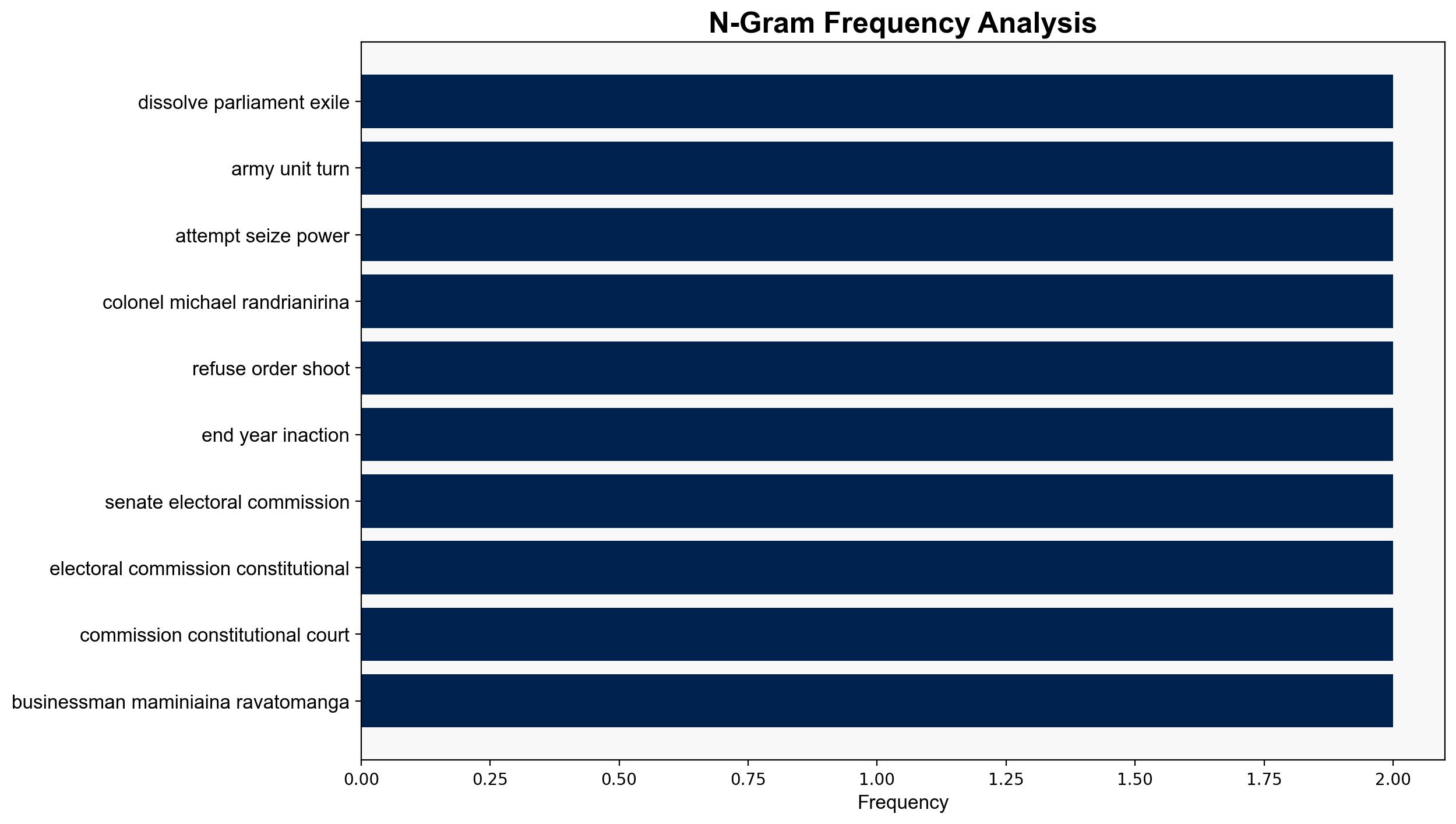Who is in charge of Madagascar after President Rajoelina flees – Al Jazeera English
Published on: 2025-10-14
Intelligence Report: Who is in charge of Madagascar after President Rajoelina flees – Al Jazeera English
1. BLUF (Bottom Line Up Front)
The most supported hypothesis is that Colonel Michael Randrianirina, head of the elite army unit CAPSAT, is currently in charge of Madagascar following President Rajoelina’s departure. This conclusion is drawn with a moderate confidence level due to the lack of confirmed information about the political situation’s stability. It is recommended to closely monitor the situation for signs of consolidation of power or further unrest.
2. Competing Hypotheses
1. **Colonel Michael Randrianirina is in charge:** The elite army unit CAPSAT, led by Colonel Randrianirina, has reportedly seized control of the state broadcaster and is positioned to assume leadership following Rajoelina’s exit. This hypothesis is supported by reports of CAPSAT’s actions and the high court’s confirmation of Randrianirina as the leader.
2. **A power vacuum exists with no clear leader:** Despite CAPSAT’s actions, the political situation remains fluid, and there may be no definitive leadership. The opposition’s rejection of the army’s takeover and ongoing protests suggest a lack of consensus on leadership.
Using ACH 2.0, the first hypothesis is better supported due to the direct actions taken by CAPSAT and the legal acknowledgment of Randrianirina’s role, despite ongoing unrest and opposition.
3. Key Assumptions and Red Flags
– **Assumptions:** It is assumed that CAPSAT’s control over the state broadcaster equates to control over the government. It is also assumed that the high court’s confirmation is legitimate and widely accepted.
– **Red Flags:** The opposition’s rejection of the army’s actions and the potential for misinformation or biased reporting. The lack of clear communication from Rajoelina or other government officials raises questions about the legitimacy of the current leadership.
4. Implications and Strategic Risks
The current situation could lead to further political instability and economic decline, exacerbating existing issues such as poverty and infrastructure challenges. The potential for civil unrest remains high, which could destabilize the region and impact international relations. If the power struggle continues, there is a risk of increased violence and humanitarian crises.
5. Recommendations and Outlook
- Monitor communications from CAPSAT and opposition groups to assess shifts in power dynamics.
- Engage with regional partners to prepare for potential humanitarian aid needs.
- Scenario Projections:
- Best Case: Peaceful transition of power with international mediation.
- Worst Case: Escalation into widespread violence and humanitarian crisis.
- Most Likely: Continued unrest with intermittent power struggles and protests.
6. Key Individuals and Entities
– Andry Rajoelina
– Colonel Michael Randrianirina
– CAPSAT (elite army unit)
7. Thematic Tags
national security threats, political instability, regional focus, governance crisis




